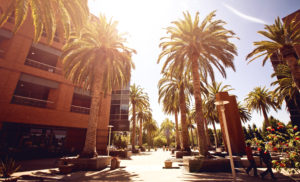When people think of Silicon Valley, they think of technology, the internet, and money. Silicon Valley is the birthplace of tech giants, including Facebook, Apple, and Google. While Silicon Valley is often equated to apps, social media networks, and pioneers of the tech world, it is not as frequently linked to drugs. But if one pulls back the curtain of tech success, they will find a culture of drugs and excess that all too often leads to addiction and overdose.
What Is Silicon Valley?
Silicon Valley is not technically a town or city. Instead, it is a region in Northern California that encompasses many cities, including Cupertino, Santa Clara, San Jose, Palo Alto, and Mountain View. Although several miles to the North and not part of the Silicon Valley region, San Francisco is often bundled into conversations about Silicon Valley happenings and the greater Silicon Valley “mindset.”
Why Does Silicon Valley Have a Drug Culture?
This is a question without a clear, singular answer. However, given the resources, freedoms, and lifestyles of many of Silicon Valley’s entrepreneurs, there could be several reasons for the continued drug culture in the area.
In 2013, Google executive Forrest Hayes died of a heroin overdose. While there were several underlying circumstances surrounding his death that had little to do with drugs, his overdose pointed to a broader problem within the tech industry and the greater Silicon Valley environment. It also led many to ask why. If there is so much money and, in theory, so much education and knowledge, why is there such a lack of understanding or concern around the consequences of drug use, drug abuse, and addiction?
One of the first reasons could be work-related stress and burnout. To get anywhere in what is notably a competitive environment, executives, entrepreneurs, and those who dream of being either of the above are required to “put in their time.” This often leads to long days, short nights, excessive stress, and eventual burnout. Without healthy coping mechanisms, it is easier to have a drink or consume a stimulant like Adderall. That is often enough to keep them “up” long enough to finish a project, impress their boss, and even get the promotion they were hoping for. It’s a vicious cycle that often has dangerous and sometimes fatal outcomes.
Another possible cause is boredom. Many tech execs didn’t start as part of the party scene. They put in the effort, got the grades, and subsequent degrees to make a name for themselves among their competition. Fast-forward a few years, and they have landed the job, the car, the house, and the lifestyle. They have achieved their goals, and boredom sets in. Boredom can be hazardous in these cases as it leads to the desire to “try new things” or “seek new adventures.” When money and time are not an issue, experimentation can lead to problems with drugs and alcohol that are difficult to overcome without help from a rehab center.
Substance use is not new to the tech industry. Giants of the industry from Sean Parker to Steve Jobs, Bill Gates, and (depending on the interview you watch), likely Elon Musk, have all discussed or at the very least alluded to the role that drugs once played in their lives. Although Silicon Valley tech giants from Apple to Yahoo indicate they have rigorous substance use policies in place, they decline to provide details, and there seems to be more of a “don’t ask, don’t tell” policy in place. This seems even more applicable in instances where many tech start-ups offer everything from keg refrigerators to whisky nights.
Whatever the reason may be, there remains a prevalent culture of drug use throughout Silicon Valley. Unfortunately, what often begins as experimentation devolves into significant difficulties with substance use disorders and relapsing addiction. Getting help at a Northern California drug and alcohol rehab is often the only way to overcome drug and alcohol dependency.




